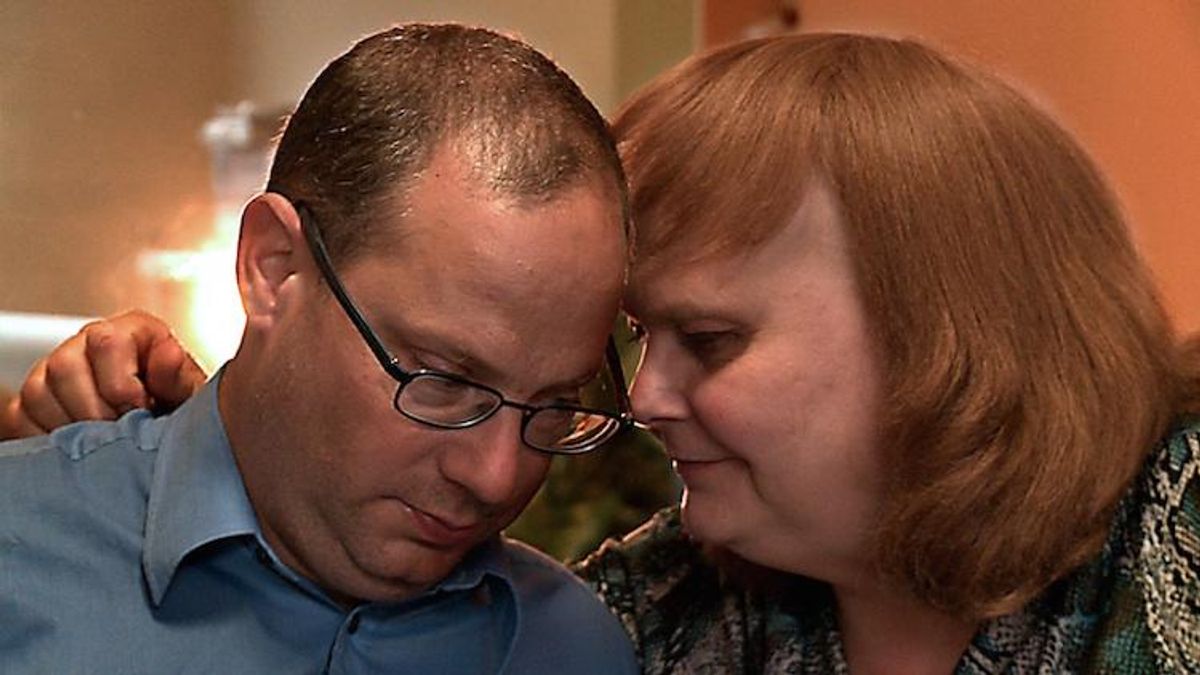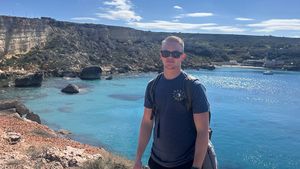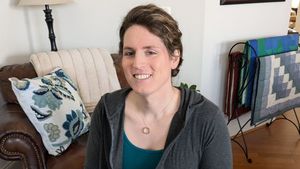Martine Stonehouse and John Gelmon may look like any ordinary couple, but their love story is exceptional. In the recent documentary Transfixed, director Alon Kol chronicles the unlikely bond between the pair, both of whom live with Asperger Syndrome and face stigma from all sides of society. Stonehouse is also a transwoman who fights multiple battles--legal, emotional, societal--to finally undergo gender-reassignment surgery in Canada.
Transfixed maps their moving near-decade long journey together against incredible odds. We spoke with Stonehouse about the documentary and learnt about her and Glemon's experiences of having their intimate life shared on the big screen.
Out: Can you tell us about your legal campaign to have gender reassignment relisted by the Ontario Health Insurance Plan in Canada after it was taken off?
Martine Stonehouse: The case was widely known about in Canada and the fact that I had won. There were three other people that were added to my case after I had launched it. The ruling basically came down that three of the four of us could get our [gender reassignment] surgeries covered, but not the fourth person. That person appealed.
During this time, the Trans Lobby Group was formed. We kept on after the case had finished and lobbied the government and finally got the health minister to relist the surgery in 2008, 10 years after it had been delisted for everyone in the province. Our lobby group has since gone on to get gender identity and expression into the Ontario Human Rights Code in 2012, of which six provinces and one territory followed.
Why did you want to do this documentary?
I wanted to do it so that people would get a good understanding of what trans people are all about, taken from a perspective of everyday life.
The film covers a significant chunk of time. How long did they film you and John for?
We spent a good five years filming it--and it was quite a job. We weren't really experienced like actors and all together it took about seven years, taking into account when we first met and when it was put together. It got really monotonous at times, especially when we had to repeat our lines like if a plane flew overhead. It got frustrating at times, but it was a learning experience.
The filmmaker interviewed one of your friends who said that your Asperger Syndrome actually helped keep you motivated during the long and taxing legal processes to have your surgery relisted. Do you think this is true?
Yes, because of my Asperger Syndrome, I was able to "outspeak" the government lawyers. I fought the Ontario government for eight years with a human rights case against the Ministry of Health because they delisted the funding for [gender reassignment] surgery, just as I was about to get my approval at the Gender Identity Clinic. So I was very focused on this case. By the time we finished it, we had about 15 banker's boxes full of research that I had done for the case. I had a lot of fun with the case. It felt like a chess game, trying to outwit the opposition.
At one point in the film, you ask the director to stop the cameras. Were there many moments during filming where you wanted to stop?
Yes, there were many times when I was very tired after work and I really didn't feel like doing any filming. The same goes for John, who worked five days a week.
After your first consultation, you were told you could not go through with gender-reassignment surgery because of your weight. How did you take the news?
I was very disappointed because I wasn't sure where I was going to find a doctor that could do the surgery. I know there have been other overweight people who have had the surgery, but I didn't know where they had gone.
What was your response to the documentary when you first saw it?
The first time we saw the finished product I thought it was really quite something to see yourself on the big screen like that. Everybody who has seen the film and has spoken to us likes it. I really think it can be a valuable tool to educate the public to show them that trans people are everyday people trying to make a living in this world.
Since undergoing your surgery, how has your life changed?
For me, having the surgery, I feel more comfortable with myself and I don't regret having it at all, even with all the complications I had. I wouldn't go back the way I was. I wasn't a happy person at all.
Watch the trailer for Transfixed below. The documentary is currently making rounds at festivals around the country.
Nathan Smith is an arts and culture writer. His writing has appeared in The Washington Post, The Atlantic, and Forbes. Nathan tweets at @nathansmithr.

























































































